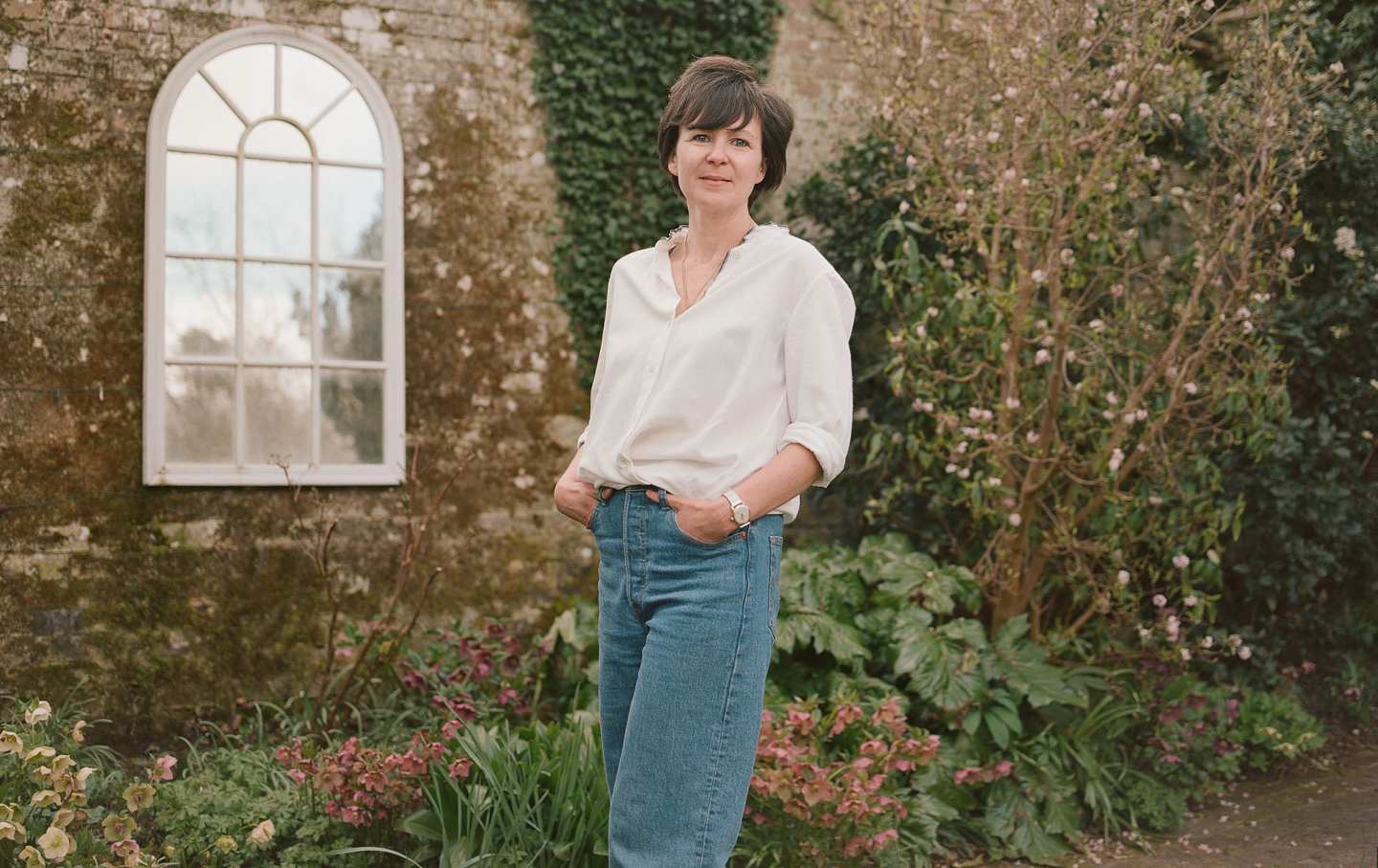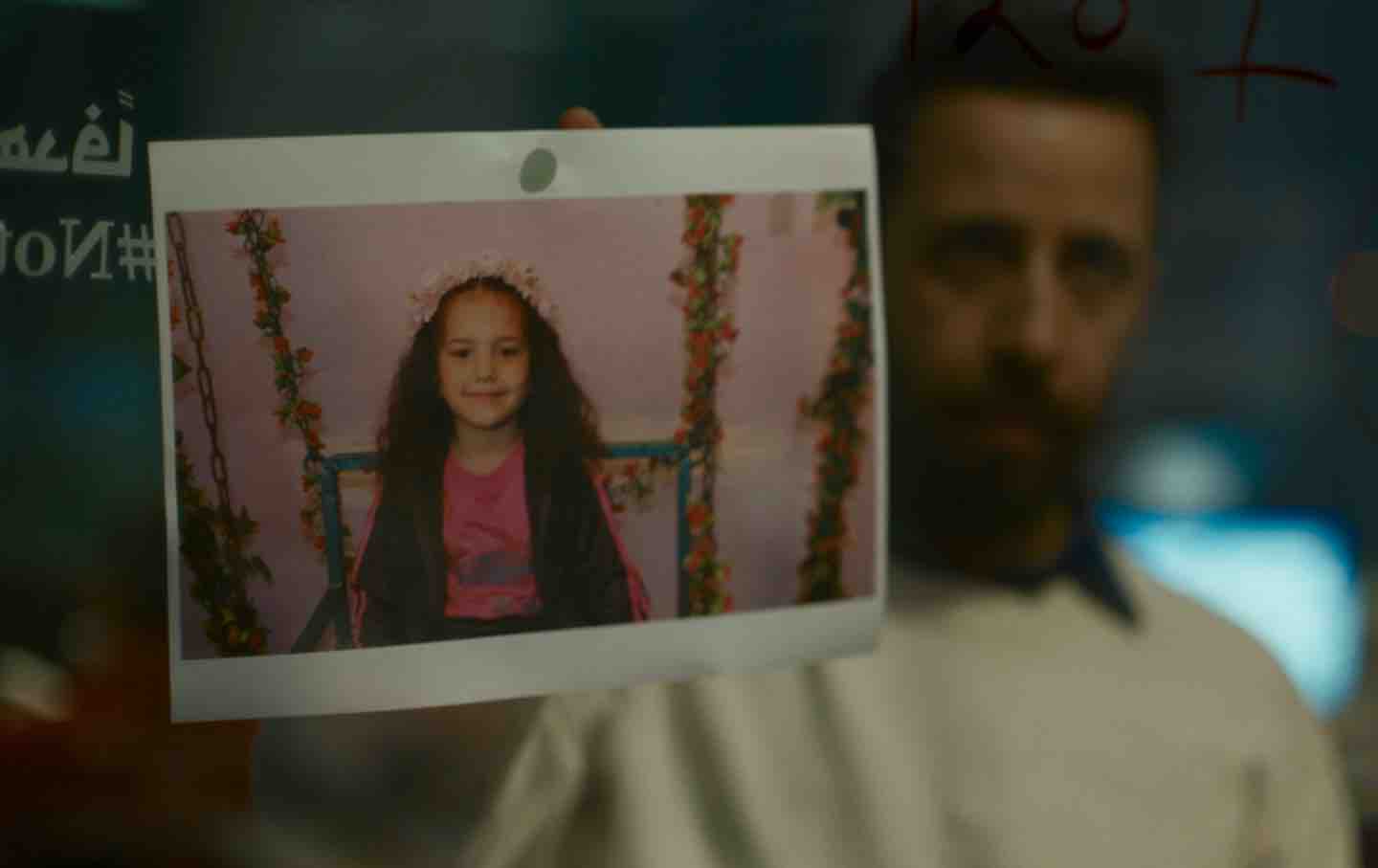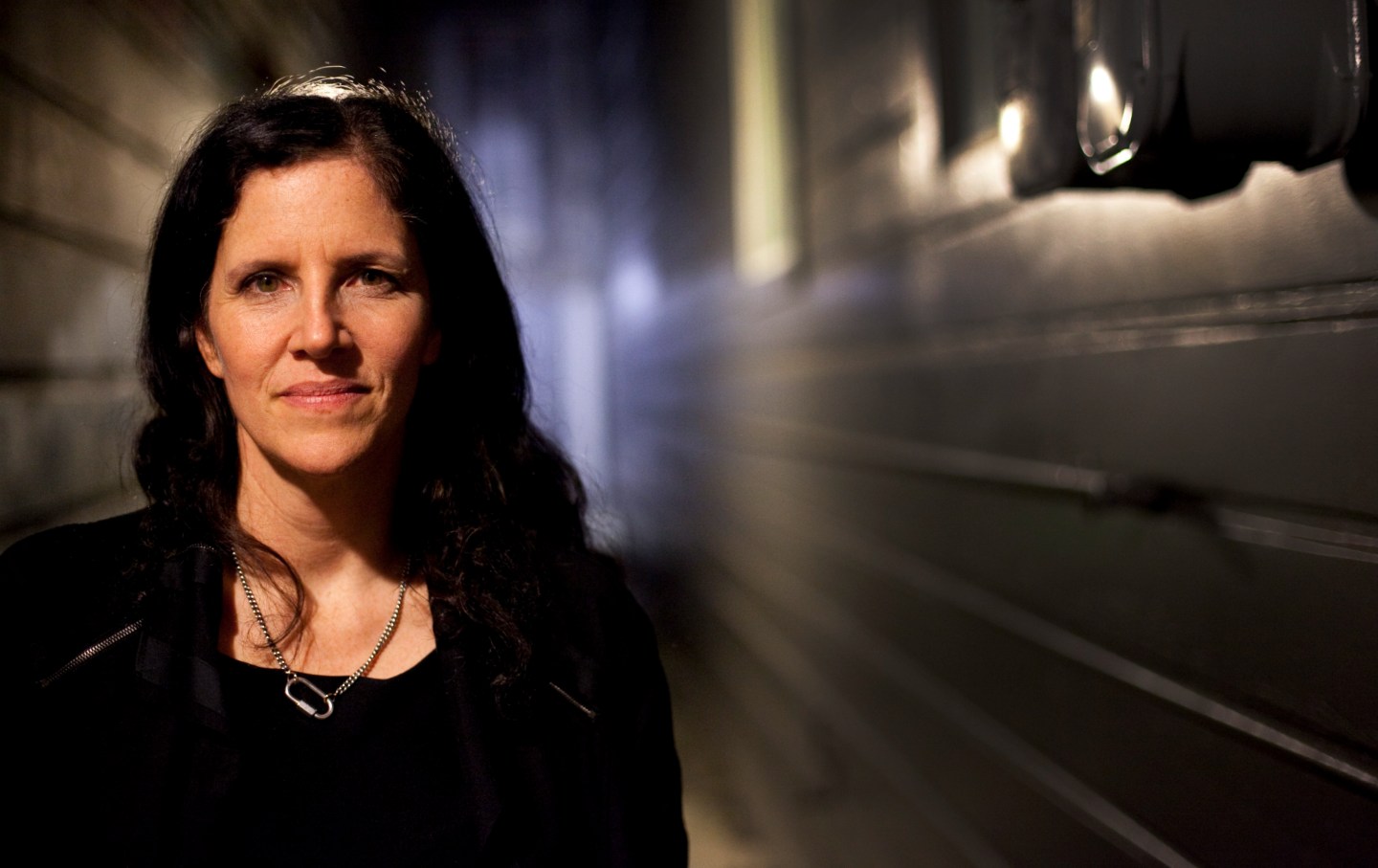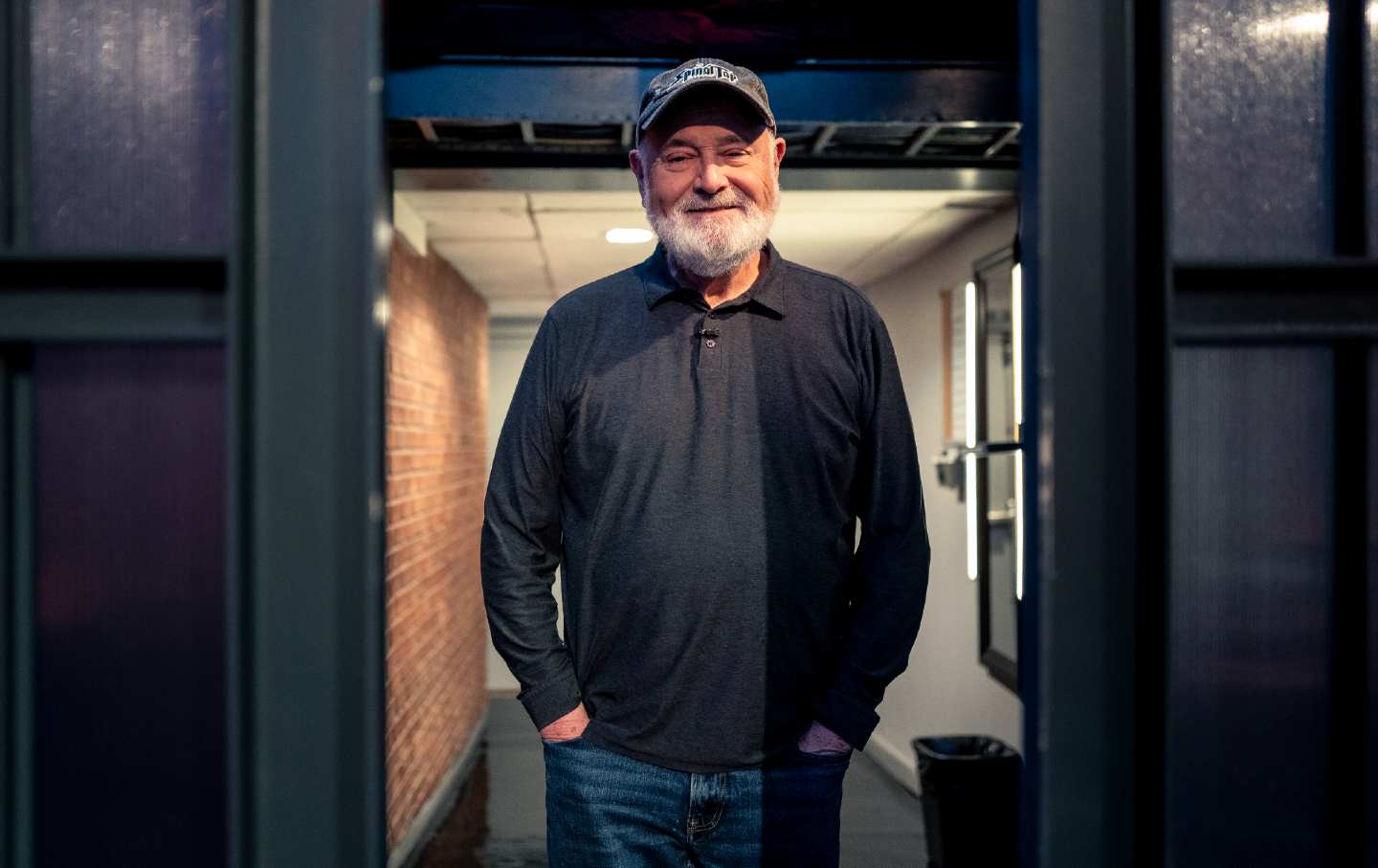The Radical Politics of the Garden
An interview with author Olivia Laing.

Olivia Laing is an acclaimed writer and critic whose work focuses on art and culture. The recipient of the 2018 Windham-Campbell Prize, she’s the author of seven books, including three she considers a loose trilogy: The Lonely City (2016), Everybody (2021), and her newest, The Garden Against Time: In Search of A Common Paradise (US edition by W.W. Norton, June 25). When I spoke to Laing in April, she was at home in Suffolk, where, for the past four years, she has lived and cultivated the garden at the center of her latest book.
—Sara Franklin
Sara Franklin: The relationship between enclosure and control, freedom and wildness is a major theme of the book. Can you frame out how you think about this, and, perhaps, how you bridged to this project from your previous book, Everybody: A Book About Freedom?
Olivia Laing: This book is really about paradise, but a complex vision of paradise. It looks at the ways in which seeming paradises of the past have been founded on exclusion or exploitation, and it also looks at radical paradises of possibility: gardens established in war zones, queer gardens as sanctuaries. There’s a model of freedom, just like there’s a model of paradise, that is actually very exclusive and very privileged and involves harm to others. I wanted to really lay those bare, but I also wanted to offer alternatives. In this book about gardens, I explored the process of enclosures in Britain and how slavery funded the great gardens of both America and Britain. It was an important process to really track the money, the nitty gritty of what was happening. To do that I used the Middletons, a slave-owning family that had come from Britain, went to America, made an enormous amount of wealth out of plantations, and then came back here and went through a process almost of money laundering, using gardens to move their way up the class ladder, to gain social influence and power. So trying to expose those seething nightmares beneath these seemingly beautiful and innocent landscapes—showing the violent processes, the people who were disenfranchised, the people whose liberties were taken, and reflecting on whiteness in particular—was a very important part of the project.
SF: I was so interested in the linguistic link you made about the word planter and plantation. Can you speak a bit about that?
OL: There’s a beautiful side of it, which is someone who plants things in the earth. But then gradually, as the colonial work of what was to become the British empire began, there’s this sense that it’s about planting colonial communities. Peeling away the history of the words that are used was analogous to peeling away the historical and financial record, to see not only who was doing what but also what it cost, in terms of money, but also in terms of the people that were excised from the record.
SF: You explore this notion of ownership, and the ability—or perhaps the lack thereof—to own plants and gardens, these living things. I’m curious what it means to you, at this juncture, to have a garden of one’s own.
OL: That’s a really key question. It really is about thinking about ways in which gardens can be inclusive. The answer, for me, is about a massive investment in public garden infrastructure internationally. One of the most interesting pieces of research that I came across was done at Great Dixter. When they did a biodiversity audit of the estate, they discovered that the most biodiverse areas weren’t the wilderness areas—the woodlands and the ponds—but the actual gardens. There’s a possibility there for a response to climate change that allows humans to be creative, to engage in joyful, aesthetic, pleasurable activities that aren’t harmful. There is a way of building paradise that might be beneficial not only to our own species but to other species too. That, to me, was absolutely crucial.
SF: Much of this book was during and about the early days of the Covid pandemic, during a time of fear, illness, and mortality. You write of this uncertain relationship to time, which is true always, but was heightened in that moment. I’m curious how gardening has shaped your thinking about aging and mortality.
OL: For a long time, my gardening was a sustaining practice, a soothing and a positive thing in my life. But I hadn’t quite grasped the real message around time in gardening, which is that you have to accept these periods of death. There are periods of retraction and withdrawal, and then periods of abundance. That began to seem more and more key to me in terms of climate change, in terms of horrific growth-based economies that are causing more and more environmental harm. The garden is an antidote to that, and gives space to think about time very differently. In the garden, you’re called into the now, the perpetual now. But at the same time, you’re in a clock that’s cyclical rather than a model of time that’s always pressing forward, like capitalism time.
SF: One of the things that I think is really revolutionary about gardening, especially in this era when we insist on hypermobility, the sense of status in our ability to move around, take long-haul flights, etc., is what can be learned and wrought from staying put. I wonder, now that you’ve been in this garden for four years, what it is that you’re learning about staying in place?
OL: I don’t say yes to invitations involving long-haul flights anymore because of climate change, and it’s met with astoundment, even when I’m invited to festivals on the other side of the world about climate change. So it still is this kind of taboo act to say, “I don’t fly” or “I’m reducing my flying.” Perhaps what we need to be offering is a sense of why it’s richer to stay in one place, why it’s richer to be able to communicate from the place you’re in. I think it’s really tricky. But increasingly my desire with downtime or vacations is to stay in the same place and to be in that place more deeply rather than constantly wanting to be hit with the jolt of the new. Learning to love repetition is perhaps one of the things that we are now tasked to do, rather than looking for the excitement of something different. Again, it’s an anti-capitalist act, so it’s a hard sell, but I think that’s the thing that’s most crucial right now.
SF: Do you, in fact, believe it’s richer to stay in place? Is it true for you?
OL: It is very hard to say no to invitations to go to fantastic places. There’s a disappointment. And maybe that’s something we need to be really honest about grappling with—it would be wonderful to do that, but it’s only wonderful when it’s unyoked to the cost. It isn’t wonderful if you actually see the cost of what you’re doing because that cost is horrific, disgusting, devastating. That’s always been the problem of communicating around climate change: We see what’s right in front of us, and so the cost to someone on the other side of the world is invisible to us. But, increasingly it’s on our doorsteps.
SF: Now that you’ve ben tethered in place more than four years after a lifetime of relative transience, what’s surprising to you about the microcosm?
OL: Pre-pandemic, I was spending a lot of time in New York, I had a very cosmopolitan life, and probably a terror of the parochial, rural life. But actually, it was a cosmopolitan experience being here during lockdown, because things are always coming through. Migratory birds, migratory insects, always a sense that something’s happening, someone’s arrived, someone’s left, there’s the first cuckoo in from Africa or the swifts. There’s a sense that there’s action still going on around you if you stop and look at it. I found that exciting.
SF: You made a comment in another interview about being a fan of high-maintenance gardening. You also write about the immense satisfaction of the physical labor of the garden. Talk to me a bit about your attraction to that which needs constant tending, and how it shapes your worldview.
Popular
“swipe left below to view more authors”Swipe →OL: It’s exactly the same as writing. I really thrive off having tasks that feel impossible to complete and to trudge away at them until they’re done. That’s something I really need in my life and I constantly try and furnish in different directions. It’s relational, what I want from the garden. I want it as a space to be participating in. That sense of looking for what’s wrong and how to solve it, is exactly the same when I go out in the garden in the morning or open a Word doc and run through a text. I find a problem to solve and work away at it. Both have got two aspects: an architectural aspect, and a sort of daily editing aspect that’s just laborious and very, very pleasurable for me. I think people have a lot of fantasies about creativity. The day-to-day reality of being an artist is fairly hard and boring. You’re not generating the material so much as shaping it, sharpening it, cutting things out from it. You’re solving problems. It’s unglamorous, and at the same time it’s really, really exciting.
SF: You talk about the dangerous illusion of perpetual fecundity in the garden. What are the dangers of believing there is such a thing?
OL: Perpetual fecundity, perpetual abundance, perpetual growth, being able to eat strawberries in the middle of winter, this idea that there will always be the goods to supply our appetites rather than that our appetites should track the growth cycles of the planet we live on… I think the wheels are really falling off that cart right in front of us. The sense that our resources are unlimited is becoming such a tarnished vision right now. We were told to believe that there would always be enough of everything, and clearly there isn’t enough of everything. It’s that deep paradise illusion, that you can pick apples from the tree, that the fruit will keep coming and coming as long as the appetite is there. And that isn’t true. That’s what nature is constantly telling us. It’s abundance followed by scarcity, scarcity followed by abundance.
SF: You write about the soil literally baking that hot, dry summer of 2022, and that when it did rain, the water just running off. I’m curious to hear your thoughts about adaptation in the face of drought.
OL: I cannot get my head around a society that does not understand that without water, there is nothing. And not just honoring it as a resource that’s essential to our survival, but understanding that it’s at this center of the network of life that we all depend upon feels like the first truth of our existence. Water is at the center of whatever climate change strategy we’re going to need.
SF: You write, “War is the opposite of a garden, the antithesis of a garden, its furthest extremity in terms of human nature and human endeavor.” And later, “The garden is a balancing act, which can take the form of collaboration or outright war.… The garden can be a place of rehearsal too, of experimenting with inhabiting this relationship in new and perhaps less harmful ways.” Talk to me about gardens and how they help you think you think about harm, war, and destruction.
OL: One of the things that’s happening in Palestine right now is the destruction of gardens, the destruction of farmland, the destruction of trees, the destruction of plant life. That is direct in terms of generating starvation, but it’s also symbolic: A people’s gardens and land are part of that people’s soul. Choosing that as a site of attack is deliberate. I tell a story in the book about Syria, about the last gardener of Aleppo and the extraordinarily beautiful nursery he tried to sustain during bombardment. He was eventually killed, and in the film he talks about how powerful flowers are. And of course they’re not—they’re totally fragile! But at the same time, they’re this amazingly powerful symbol for the best of humanity: that kind of desire in us to make something richer, to share, to make something beautiful, to make something that nourishes. So I think that instinct in humans is the opposite of war. And at the same time, humans can garden and farm in ways that are warlike, that are very aggressive against other species in ways that are very harmful. The garden is a complicated metaphor. In this book, it was so important to me to think about gardens as something other than places to hide from the world, especially the political world. The garden, metaphorically and literally, can be a space for doing things differently, for having different kinds of power relations, for having different kinds of relations with violence and gentleness.
SF: In writing about the artist and thinker William Morris, you write, “I think what his gardens really stand for is fellowship: a humming, thrumming togetherness that transcends not only sexual desire but the human world itself. Call it a garden state: a cross-species ecology of astounding beauty and completeness, never static, always in motion, progressive and prolific. I want to live there, and the world won’t survive much longer if we don’t.” Where are you seeing examples or signs of hope that people are taking up some version of this call?
OL: The sense that people, especially young people, are very interested in environmental communities and activism—projects like rewilding, like bringing back beavers—that’s very thrilling. What I think is particularly lacking at the moment is visionary political leadership on the national level. The kind of communication that comes from a different vision of being, of a fellowship, really needs to be used politically, because the language of hatred is infiltrating our planet right now.
SF: Certainly. On that note, you write about the difficulty of learning to live with a partner—sharing space and how wonderful, but also how difficult that can be. Over these last four years, in the home and garden you share with your husband, what has been the most challenging lesson you’ve learned around the reality of living that better way, with more interdependency and more intimacy?
OL: That is a really good question. I think the importance of practice, and of being able to make mistakes and improve!
SF: You’re always an amateur in the garden, it’s one of the humbling, beautiful lessons of that space. You can never “get it right,” especially with the rapidity of climate change. Even if you nail something, it’s going to change again the next season.
OL: Absolutely. I think we’re in a cultural moment that finds it difficult to tolerate getting things wrong, trying things again, doing things slightly better, but still doing it wrong. That process of rather humiliating learning, where you fall down a lot. I think that is actually how you get to tolerate other beings, tolerate difference, tolerate the loosening of one’s selfishness. For me, that’s definitely been the experience. I think part of why I find cancel culture so concerning is that if we want to change the world that we’re living in right now, we’re going to make a lot of mistakes along the way. I think a kind of tenderness and acceptance around people making mistakes is really crucial. That, for me, has been really crucial: to be allowed to make mistakes, to be allowed not to know how to do something and do it badly, and get better at it.
Disobey authoritarians, support The Nation
Over the past year you’ve read Nation writers like Elie Mystal, Kaveh Akbar, John Nichols, Joan Walsh, Bryce Covert, Dave Zirin, Jeet Heer, Michael T. Klare, Katha Pollitt, Amy Littlefield, Gregg Gonsalves, and Sasha Abramsky take on the Trump family’s corruption, set the record straight about Robert F. Kennedy Jr.’s catastrophic Make America Healthy Again movement, survey the fallout and human cost of the DOGE wrecking ball, anticipate the Supreme Court’s dangerous antidemocratic rulings, and amplify successful tactics of resistance on the streets and in Congress.
We publish these stories because when members of our communities are being abducted, household debt is climbing, and AI data centers are causing water and electricity shortages, we have a duty as journalists to do all we can to inform the public.
In 2026, our aim is to do more than ever before—but we need your support to make that happen.
Through December 31, a generous donor will match all donations up to $75,000. That means that your contribution will be doubled, dollar for dollar. If we hit the full match, we’ll be starting 2026 with $150,000 to invest in the stories that impact real people’s lives—the kinds of stories that billionaire-owned, corporate-backed outlets aren’t covering.
With your support, our team will publish major stories that the president and his allies won’t want you to read. We’ll cover the emerging military-tech industrial complex and matters of war, peace, and surveillance, as well as the affordability crisis, hunger, housing, healthcare, the environment, attacks on reproductive rights, and much more. At the same time, we’ll imagine alternatives to Trumpian rule and uplift efforts to create a better world, here and now.
While your gift has twice the impact, I’m asking you to support The Nation with a donation today. You’ll empower the journalists, editors, and fact-checkers best equipped to hold this authoritarian administration to account.
I hope you won’t miss this moment—donate to The Nation today.
Onward,
Katrina vanden Heuvel
Editor and publisher, The Nation
More from The Nation

Why “The Voice of Hind Rajab” Will Break Your Heart Why “The Voice of Hind Rajab” Will Break Your Heart
A film dramatizing a rescue crew’s attempts to save the 5-year-old Gazan girl might be one of the most affecting movies of the year.

How Laura Poitras Finds the Truth How Laura Poitras Finds the Truth
The director has a knack for getting people to tell her things they've never told anyone else—including her latest subject, Seymour Hersh.

Rob Reiner’s Legacy Can't Be Sullied by Trump’s Shameful Attacks Rob Reiner’s Legacy Can't Be Sullied by Trump’s Shameful Attacks
The late actor and director leaves behind a roster of classic films—and a much safer and juster California.

Blood Orange’s Sonic Experiments Blood Orange’s Sonic Experiments
Dev Hynes moves between grief and joy in Essex Honey, his most personal album yet.



